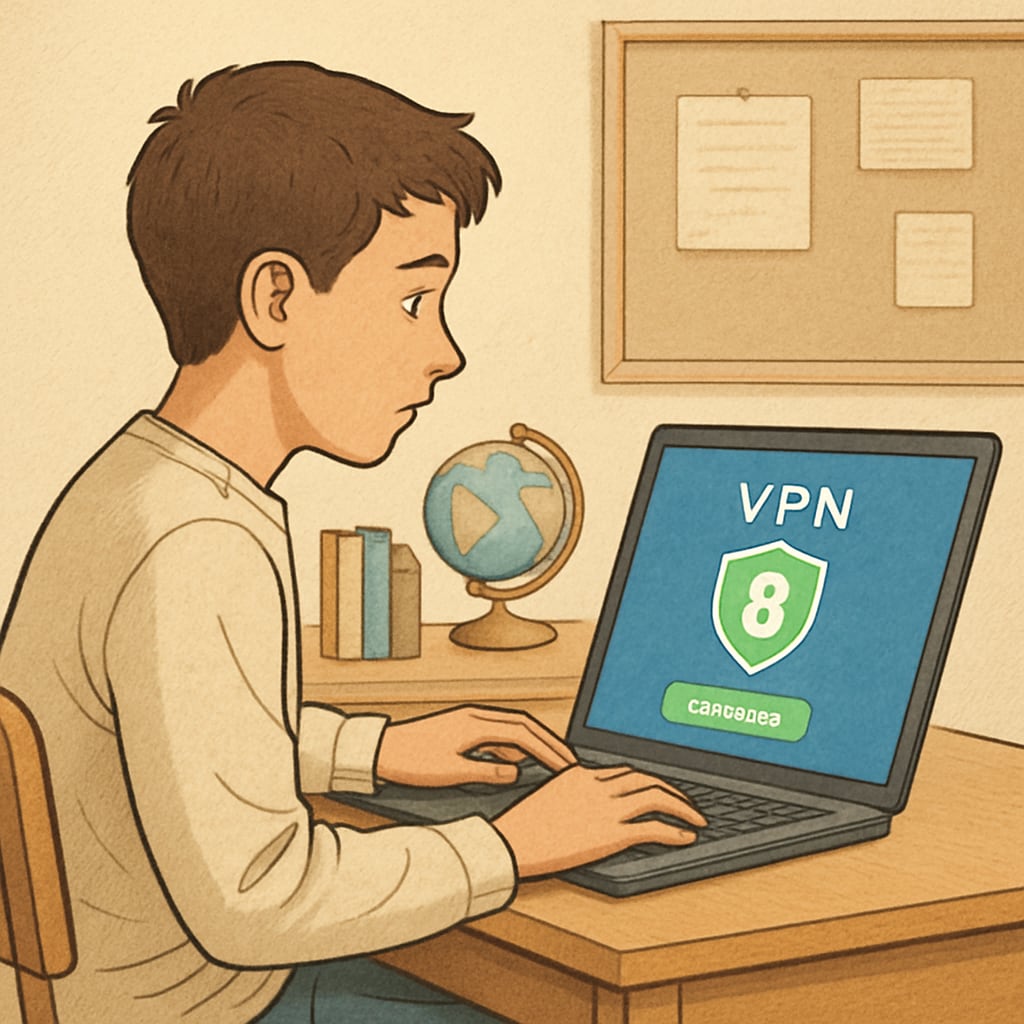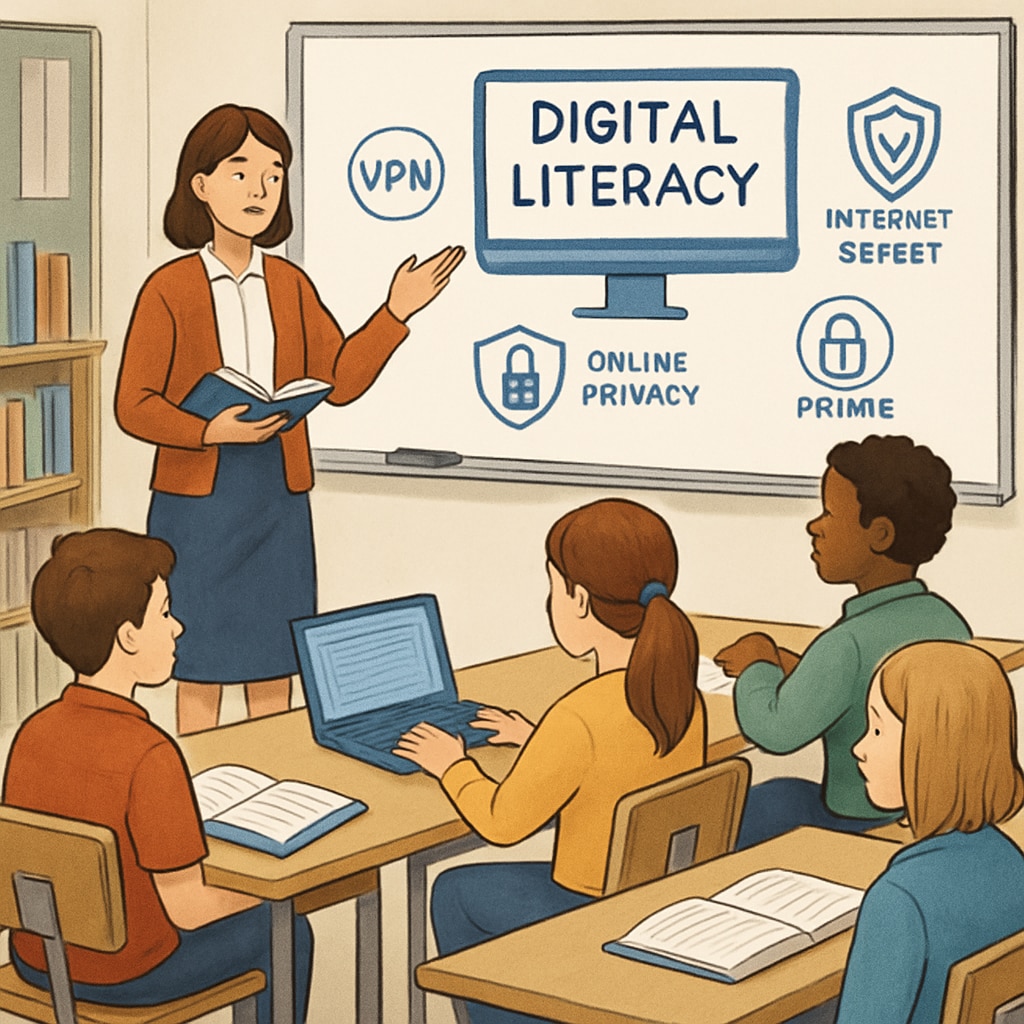The introduction of the UK Age Verification Law has ignited widespread discussions on its impact on internet safety and digital behavior. Designed to protect minors from accessing age-inappropriate content, the law has inadvertently led to a surge in VPN (Virtual Private Network) usage, especially among tech-savvy teenagers. This development underscores the critical need for robust digital literacy education in K12 schools, which can empower students to navigate the internet responsibly while also understanding the risks and benefits of legal frameworks like the Age Verification Law.
Understanding the UK Age Verification Law and Its Implications
The UK Age Verification Law, implemented to restrict access to adult content, mandates websites to verify users’ ages. While the intent behind this law is commendable—safeguarding minors from harmful content—it has faced criticism for its unintended consequences. One such consequence is the explosive rise in VPN usage. VPNs allow users to bypass location-based restrictions, effectively nullifying the law’s enforcement in many instances.
This phenomenon raises critical questions about the efficacy of such laws in the digital era. More importantly, it highlights a gap in the education system: Are students being adequately prepared to understand and respect digital laws? Without proper guidance, tools like VPNs could be misused, leading to potential exposure to harmful content rather than its prevention.

Why K12 Digital Literacy Is More Crucial Than Ever
The rise in VPN usage among minors is not just a technical issue—it reflects a deeper concern regarding their understanding of online ethics, safety, and responsibility. Digital literacy, which includes knowledge of online laws, cybersecurity, and ethical behavior, is an essential skill for today’s students. However, many K12 curriculums still fall short in addressing these areas comprehensively.
Here are a few reasons why digital literacy should be prioritized:
- Understanding Risks: Teaching students the risks associated with VPN usage, such as potential exposure to malicious websites or data breaches, is crucial.
- Respecting Legal Frameworks: Students must understand the purpose of laws like the Age Verification Law and how these contribute to broader societal safety.
- Empowering Informed Choices: Digital literacy enables students to make informed decisions rather than relying on workarounds to bypass restrictions.
Practical Strategies for Educators and Parents
To address the challenges posed by the UK Age Verification Law and the rise in VPN usage, educators and parents must collaborate to foster a culture of responsible digital behavior. Here are some practical strategies:
- Incorporate Digital Literacy in Curriculum: Schools should introduce modules on internet safety, ethical online behavior, and the implications of bypassing digital laws.
- Promote Open Dialogues: Encourage students to discuss their online experiences and concerns. This creates an opportunity to address misconceptions and provide guidance.
- Monitor and Support: Parents should use parental control tools judiciously, while also educating children about their purpose.
- Leverage Technology Positively: Introduce students to legal and productive uses of technology, such as research, collaboration, and creativity tools.

By proactively engaging students in conversations about digital laws and ethics, we can move away from reactive measures like age verification laws toward a more sustainable model of digital citizenship.
Balancing Protection and Empowerment
The UK Age Verification Law serves as a reminder of the complexities involved in regulating the internet. While its primary goal is to protect minors, the law’s effectiveness is undermined when students find ways to circumvent it. This highlights the importance of a balanced approach—one that combines legal safeguards with education.
Empowering students through digital literacy not only helps them understand the purpose behind such laws but also encourages responsible online behavior. As technology continues to evolve, the role of educators and parents in shaping digitally literate citizens becomes increasingly critical.
In conclusion, the rise in VPN usage following the implementation of the UK Age Verification Law is both a challenge and an opportunity. It challenges us to rethink the effectiveness of legal measures in the digital age and provides an opportunity to emphasize the importance of digital literacy education. By equipping K12 students with the knowledge and skills to navigate the online world responsibly, we can create a safer and more informed digital environment for everyone.
Readability guidance: The article uses short paragraphs and lists to enhance readability. Transitions such as “however,” “therefore,” and “for example” connect ideas smoothly, and technical terms are explained for clarity. Passive voice is minimized to maintain an engaging tone.


